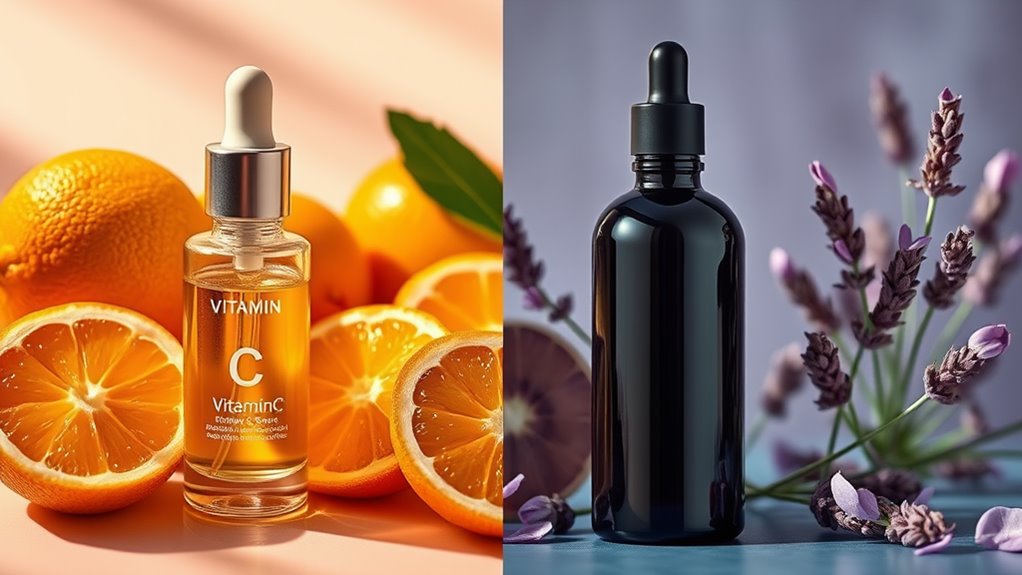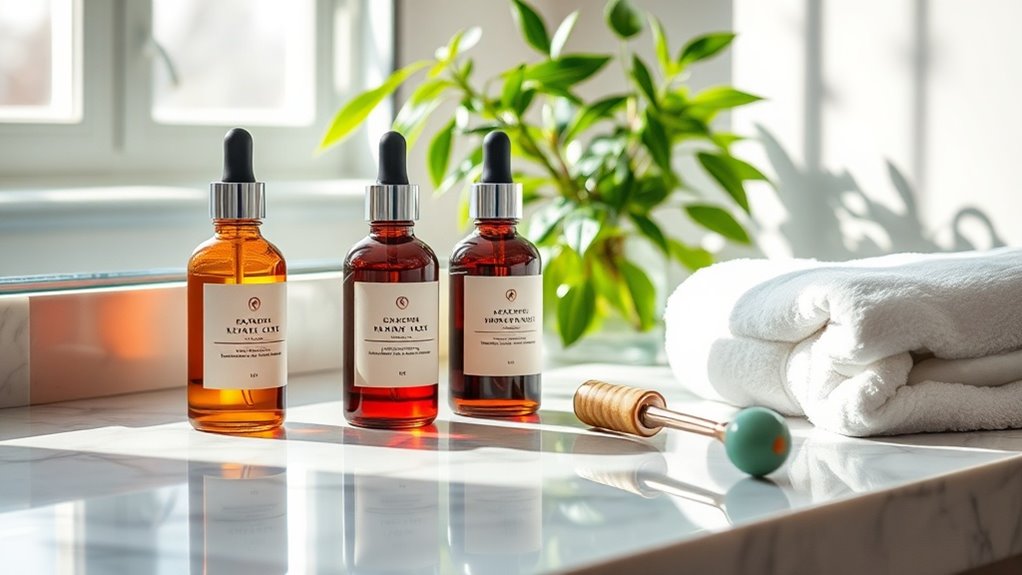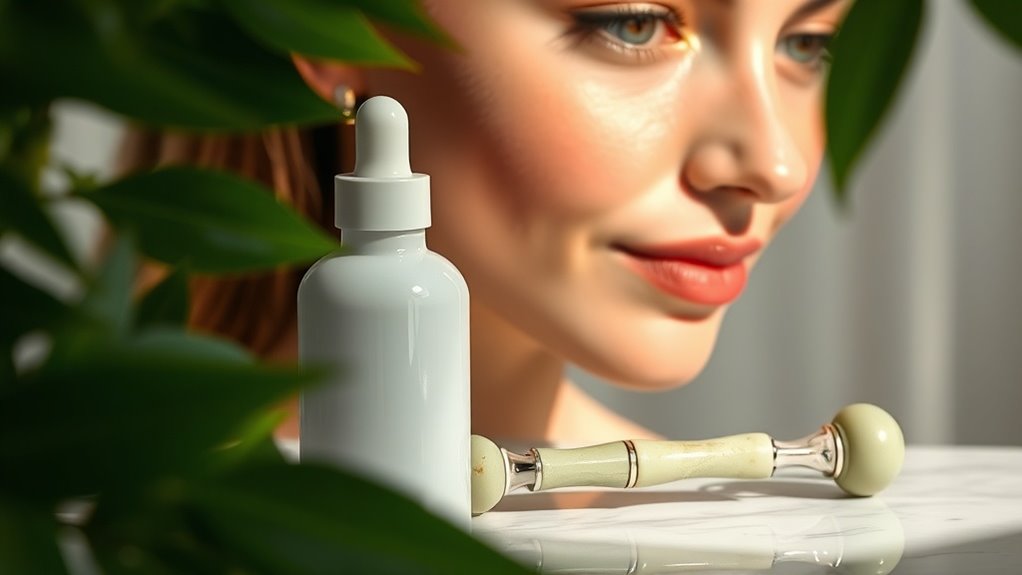Retinol vs. Vitamin C- Which One Really Fights Wrinkles Best.
When it comes to tackling wrinkles, you might wonder whether retinol or vitamin C is the better choice. Each ingredient boasts unique benefits for your skin, but understanding their distinct roles can be key. Retinol enhances cell turnover and boosts collagen, while vitamin C brightens and protects. So, which one truly delivers the best results for aging skin? Exploring their strengths and how they can complement each other may just hold the answer.
Understanding Retinol and Its Benefits for Skin Aging
When it comes to tackling skin aging, understanding retinol is crucial because this powerful derivative of vitamin A can significantly improve your skin’s appearance.
You’ll find that using retinol regularly promotes cell turnover, helping reduce fine lines and enhance overall texture. Plus, it’s a game-changer for wrinkle prevention, making you feel more confident in your skin.
As you incorporate it into your routine, you might notice a brighter, more youthful complexion. Just remember to start slowly to let your skin adjust.
Embracing retinol can truly transform your skincare journey, offering you the belonging and confidence you’ve been seeking.
The Role of Vitamin C in Promoting Youthful Skin
While retinol works wonders in promoting cell turnover and reducing wrinkles, vitamin C brings its own unique benefits to the table. This powerful antioxidant brightens your skin, giving you that radiant glow you crave.
It helps combat free radicals and supports collagen production, which is essential for maintaining skin elasticity. Plus, vitamin C can even out your skin tone, making you feel more confident in your own skin.
Comparing the Efficacy of Retinol and Vitamin C in Wrinkle Reduction
In the battle against wrinkles, both retinol and vitamin C shine for their unique properties.
You’ll find that retinol, a powerful derivative of vitamin A, encourages cell turnover and boosts collagen production, making it a strong contender for reducing fine lines.
On the other hand, vitamin C’s antioxidant power helps protect your skin from environmental damage while brightening your complexion.
If you’re looking to fight wrinkles effectively, combining both can offer great results.
Each has its strengths, and finding the right balance in your skincare routine can help you achieve a youthful, radiant look that you’ll love sharing with others.
Best Practices for Incorporating Retinol and Vitamin C Into Your Routine
Incorporating retinol and vitamin C into your skincare routine can maximize their benefits for wrinkle reduction.
Start with vitamin C in the morning to protect your skin from environmental stressors. Apply it to clean, dry skin, allowing it to absorb before moving on to sunscreen.
In the evening, use retinol, which helps with cell turnover and collagen production. Be sure to start with a lower concentration to avoid irritation.
Always follow with a moisturizer to lock in hydration. Consistency is key, so stick to your routine, and you’ll soon feel proud of the improvements in your skin’s texture and appearance.
Choosing the Right Option Based on Your Skin Type
Choosing the right skincare option between retinol and vitamin C largely depends on your specific skin type and concerns.
If you have oily or acne-prone skin, retinol might be your best friend, as it helps unclog pores and reduce breakouts.
On the other hand, if your skin is sensitive or dry, vitamin C can brighten and hydrate without irritation.
For those with mature skin, incorporating both can provide comprehensive benefits.
Remember, everyone’s skin is unique, so it’s okay to experiment and see what works for you.
Your skin deserves tailored care, and you’re not alone on this journey to radiant skin!





